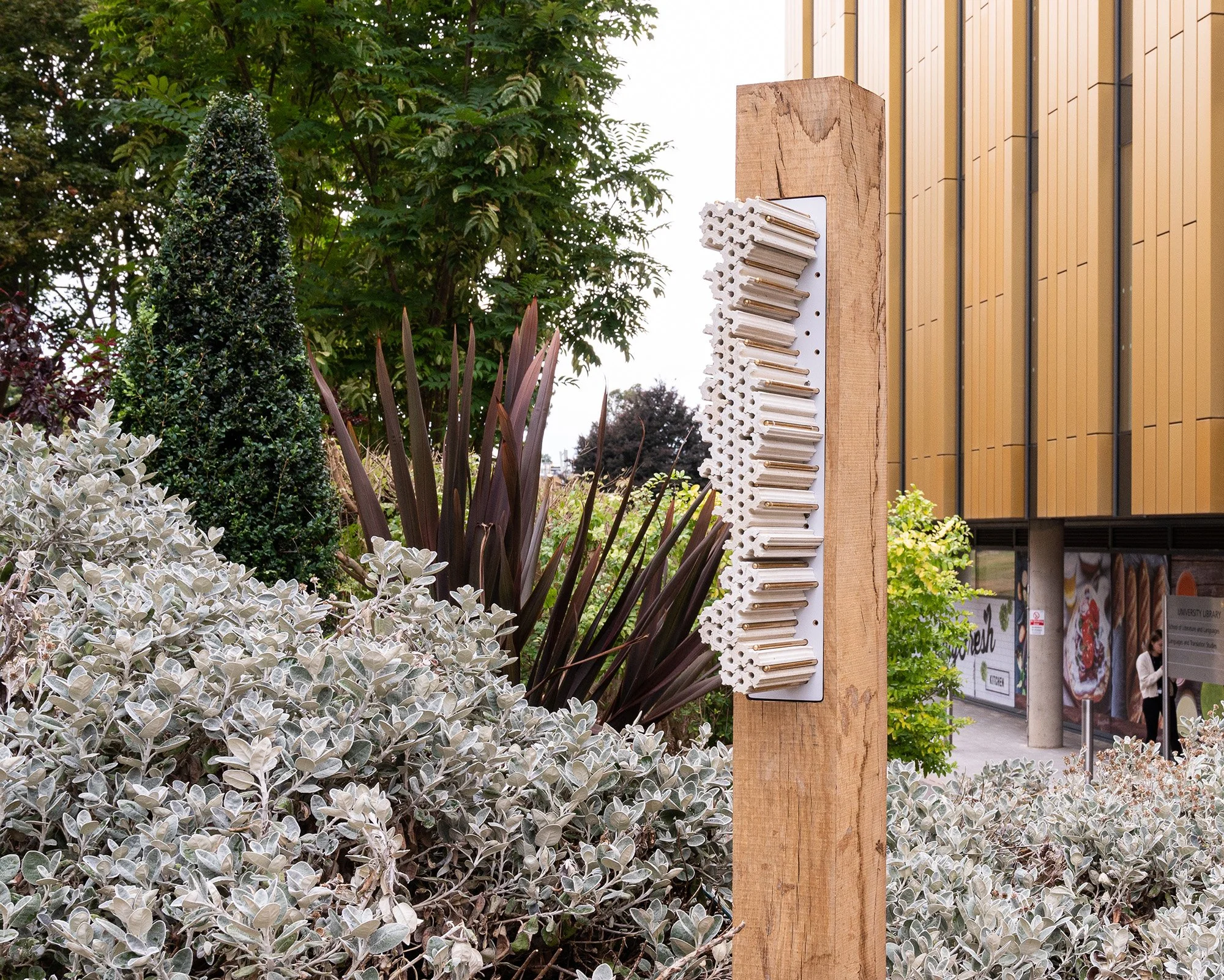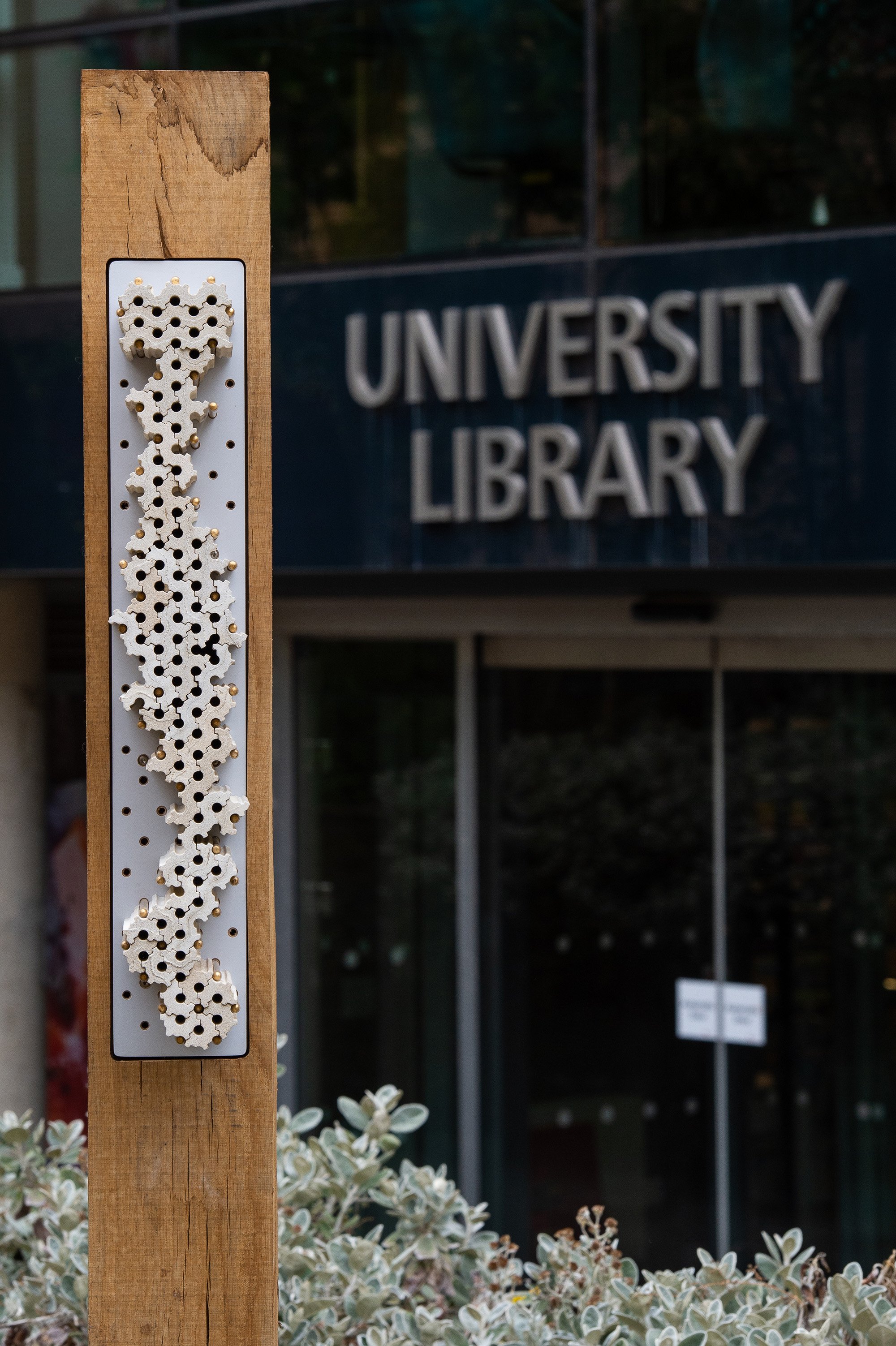
HexB
2022
Jesmonite, Brass, Oak
Dimensions: 150cm x 31cm
Commission: University of Surrey, Surrey Hills Arts
Location: Stag Hill, Guildford
-
HexB was inspired by the growing environmental activity of providing nest sites for solitary bees. Most of the commercially available ‘Bee Hotels’ are more decorative than practical, so solitary bee enthusiasts are making and sharing their own nest variations to see what works best for their local bees. Interested in this practice, artist Will Nash decided to develop his own sculptural ideas for solitary bee architecture using 3D printing, silicone moulding, and cast Jesmonite to make a prototype system of nest holes that can be easily disassembled for the annual harvesting of the bee cocoons then cleaned for reuse.
-
HexB is part of the HABITAT Community Eco Space at the Stag Hill campus, University of Surrey, Guildford. This space has been designed with planting and artworks to support and increase local wildlife, as well as enhance wellbeing. Through the sculptures, and the habitats they create, we are exploring how artists can find creative, practical solutions to help our biodiversity crisis.
Funded by Arts Council England, this is a Surrey Hills Arts project in partnership with the University of Surrey with guidance from Surrey Wildlife Trust. The project team and artists have engaged four hundred local people in creative workshops learning how they can support their local wildlife. -
Many plants require insects to pollinate their flowers and so complete their reproductive cycle – most plants cannot set seed without being pollinated (receiving the pollen, usually from another flower). Without bees, hoverflies and other insects visiting flowers, there would be no strawberries, apples, avocados, chocolate, cherries, olives, blueberries, carrots, grapes, pumpkins, pears, cotton, plums or peanuts…. And very few flowers in our gardens and countryside.
Solitary bees are not simply bees who have left the hive and are now alone. There are over 200 species of solitary bee and, as the name suggests, they live alone, although in truth they often nest close to one another. They do not produce honey, do not have a queen and do not live in hives.
It is estimated that 84% of EU crops (valued at £12.6 billion) and 80% of wildflowers rely on insect pollination.
Insect decline is also impacting birds, reptiles, amphibians and fish so even if you are not so keen on bugs, it is vital that we all act to conserve them. This sculpture is designed to raise awareness and inspire positive action on behalf of our insects.




